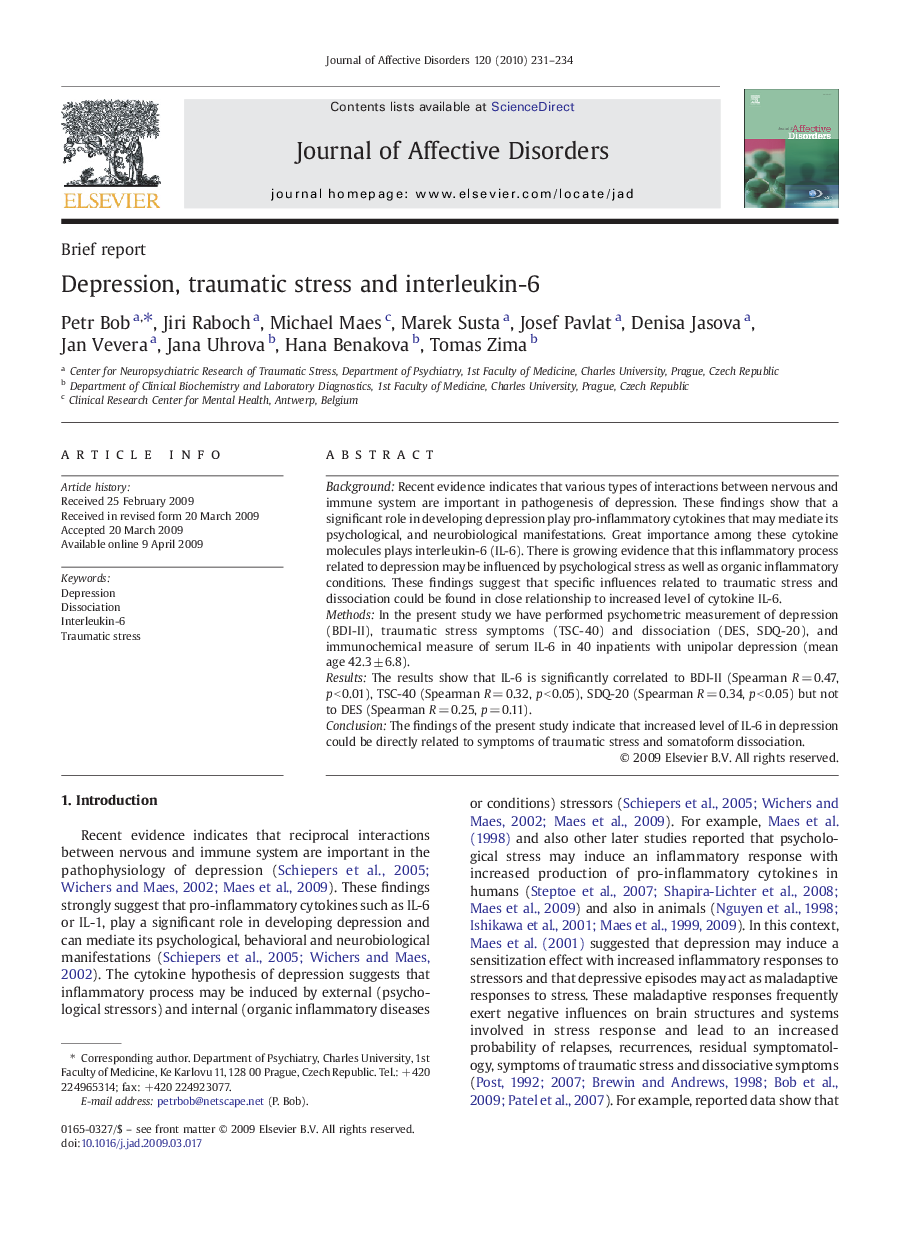| Article ID | Journal | Published Year | Pages | File Type |
|---|---|---|---|---|
| 4186721 | Journal of Affective Disorders | 2010 | 4 Pages |
BackgroundRecent evidence indicates that various types of interactions between nervous and immune system are important in pathogenesis of depression. These findings show that a significant role in developing depression play pro-inflammatory cytokines that may mediate its psychological, and neurobiological manifestations. Great importance among these cytokine molecules plays interleukin-6 (IL-6). There is growing evidence that this inflammatory process related to depression may be influenced by psychological stress as well as organic inflammatory conditions. These findings suggest that specific influences related to traumatic stress and dissociation could be found in close relationship to increased level of cytokine IL-6.MethodsIn the present study we have performed psychometric measurement of depression (BDI-II), traumatic stress symptoms (TSC-40) and dissociation (DES, SDQ-20), and immunochemical measure of serum IL-6 in 40 inpatients with unipolar depression (mean age 42.3 ± 6.8).ResultsThe results show that IL-6 is significantly correlated to BDI-II (Spearman R = 0.47, p < 0.01), TSC-40 (Spearman R = 0.32, p < 0.05), SDQ-20 (Spearman R = 0.34, p < 0.05) but not to DES (Spearman R = 0.25, p = 0.11).ConclusionThe findings of the present study indicate that increased level of IL-6 in depression could be directly related to symptoms of traumatic stress and somatoform dissociation.
